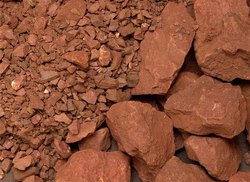Welcome To ChemAnalyst

Indonesia: According to recent reports, Indonesian President Joko Widodo has expressed his determination to uphold the newest policy that prohibits the export of Bauxite ore, despite domestic controversy and potential international legal action. As the world's sixth largest producer of Bauxite, Indonesia's decision to ban its raw ore export since June 10 has significant implications for the global industrial market, particularly in the production of Aluminium and cement. During a recent event in Bogor, West Java province, Widodo acknowledged that the ban may disappoint other nations, but emphasized the importance of advancing Indonesia's downstream industry through aggressive measures.
Indonesia's export ban on Bauxite ore is in line with its objective to enhance domestic processing of raw mineral materials, boost downstream mineral industry, and encourage investments towards constructing smelters and factories for added value of mineral productions. This policy follows the country's successful ban on unprocessed Nickel ore exports since January 2020, which led foreign investors to establish Nickel-producing factories for higher value-added industrial activities in Indonesia holds the world's largest reserves of Nickel.
The European Union (EU) has taken Indonesia to the World Trade Organization (WTO) over its Nickel export ban, citing potential harm to the EU's stainless-steel industry. President Widodo acknowledged the legal action and the government's subsequent appeal, noting that halting raw mineral exports requires courage. Meanwhile, the Bauxite export ban has generated controversy among Indonesian miners, who argue that the policy was enacted prematurely, before there were enough smelters to handle the increasing production capacity of Bauxite, leading to production cuts for some companies.
According to Indonesia's Ministry of Energy and Mineral Resources, only four out of the targeted 12 Bauxite smelters are currently operational. Due to this limited capacity, several Bauxite miners may need to decrease or halt their production. The four existing smelters can only handle 13.9 million tons of Bauxite ore per year, while the total national production has reached 30 million tons annually. As a result, this export ban may have negative consequences for hundreds of thousands of mining workers.
The Indonesian Minister of Energy and Mineral Resources, Arifin Tasrif, acknowledged that the export ban on Bauxite mining may result in over 1,019 workers losing their jobs. This is due to an anticipated decrease in export volume of up to 8.09 million tons, valued at $288.52 million in 2023. Nonetheless, Tasrif emphasized that the ban will ultimately generate a value-added benefit of $1.9 billion dollars to the Bauxite ore because of the operational refining facilities.
We use cookies to deliver the best possible experience on our website. To learn more, visit our Privacy Policy. By continuing to use this site or by closing this box, you consent to our use of cookies. More info.
